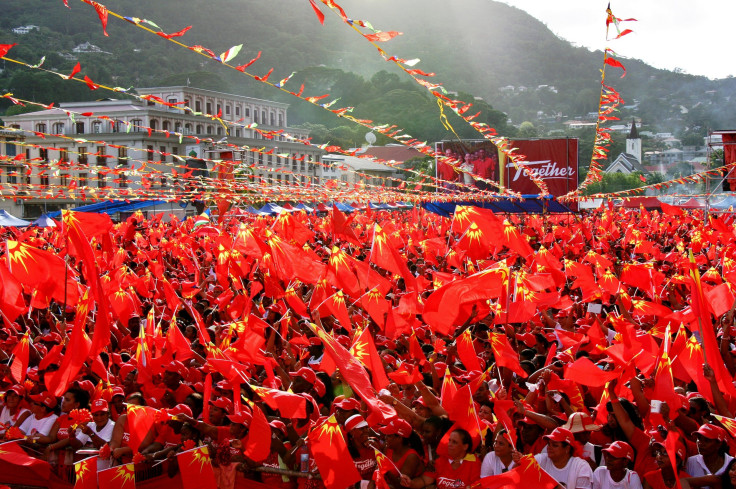Seychelles Cuts Presidential Term Limits, Going Against Recent Trend In Africa

Future presidents and vice presidents of the Seychelles will be limited to a maximum of two five-year terms, down from three, following a unanimous vote in parliament Tuesday to amend the Indian Ocean archipelago’s constitution, according to the state-owned Seychelles News Agency. The move is a departure from the recent trend in wider Africa, where many leaders have sought to extend their tenures as long as possible.
Seychelles’ President James Michel, who was re-elected for a third term in December, announced his intentions to change the law in his State of the Nation address in February. The new amendment will be implemented in the next elections when Michel and his deputy, Danny Faure, will be forbidden to run again.
"This is a clear indication that President James Michel and the vice president do not intend to remain in power," National Assembly member Marie-Antoinette Rose told Seychelles News Agency.
All 32 members of the National Assembly voted in favor of the amendment, which required a two-thirds majority. The sitting members are all from Michel’s ruling party, except opposition leader David Pierre, who also backed the change.
"This amendment will give a chance to younger politicians to have the chance to wait 10 years instead of 15, to take over the reins of power, and contribute to the development of this country," Pierre told Seychelles News Agency.
Seychelles, a tiny island nation of 92,000 people, is not the first African country to reduce term limits. Last month, Senegalese voters backed changing the constitution to cut the presidential mandate from seven years to five years, according to Bloomberg.
However, they stand in stark contrast to other African nations, including Burkina Faso, Burundi, Rwanda, the Republic of Congo and Uganda, where presidents have changed the law to stay in power longer. In some cases, the constitutional amendments sparked protests and led to deadly violence.
© Copyright IBTimes 2025. All rights reserved.





















